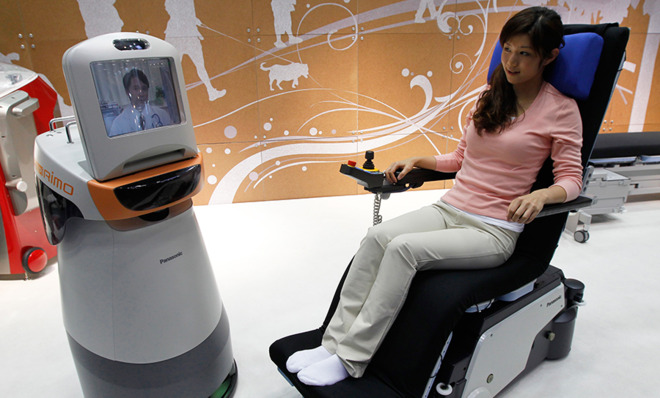How computers will replace your doctor
And open the door to a new boom in the nursing industry


A free daily email with the biggest news stories of the day – and the best features from TheWeek.com
You are now subscribed
Your newsletter sign-up was successful
You've probably read some widespread sillinesses about how technology is moving us toward a world split between "high-skill" and "low-skill" jobs. Worriers claim that people with high-skill jobs will gobble up all of the economic pie, and those with low-skill jobs will be left with mere crumbs. This notion was perhaps best exemplified by economist Tyler Cowen's book Average is Over.
This is nonsense. Because high-skill jobs are in peril, too. And sometimes, their death will make way for a raft of new "low-skill" jobs.
For example, look at the future of the general practitioner of medicine. This is considered the epitome of the high-skilled, secure, remunerative job. Four years of college! Four years of medical school! Internship! Residency! Government-protected cartel membership!
The Week
Escape your echo chamber. Get the facts behind the news, plus analysis from multiple perspectives.

Sign up for The Week's Free Newsletters
From our morning news briefing to a weekly Good News Newsletter, get the best of The Week delivered directly to your inbox.
From our morning news briefing to a weekly Good News Newsletter, get the best of The Week delivered directly to your inbox.
And yet, this profession is going the way of the dodo bird.
To understand why, the first thing you need to understand is that multiple studies have shown that software is better able to diagnose illnesses, with fewer misdiagnoses. Health wonks love this trend, known as evidence-based diagnosis, and medical doctors loathe it, because who cares about saving lives when you can avoid the humiliation of having a computer tell you what to do.
Then you need to look at companies like Theranos, which allow you to get a blood test cheaply and easily at Walgreens, and get more information about your health than you'd get in a typical doctor's visit.
Then look at a company like Sherpaa, whose mobile app provides you diagnoses, helps you get your prescriptions filled, refers you to specialists, and so on. Right now, Sherpaa works with doctors. But there's no reason to think it couldn't eventually work with software (and in the meantime, work with cheaper Indian doctors rather than morbidly expensive American doctors).
A free daily email with the biggest news stories of the day – and the best features from TheWeek.com
But, you say, we won't be able to get rid of the human general practitioner absolutely. People will still need human judgment, and the human touch.
You are right — absolutely right. But the human we need is someone with training closer to a nurse's than a doctor's, and augmented by the right software, would be both cheaper and more effective than a doctor. You might pay a monthly subscription to be able to treat this person as your family "doctor" — although most of your interaction would be with software via an app. They'd be better than a doctor, too — trained in general wellness and prevention, and being able to refer you to specialists if need be.
What room is there left for generalist doctors in that scenario? None. They're the ones who the internet will replace; and it is nurses and other "low-skilled" health workers who will do best out of this shift. And most importantly, it will be great for patients.
Pascal-Emmanuel Gobry is a writer and fellow at the Ethics and Public Policy Center. His writing has appeared at Forbes, The Atlantic, First Things, Commentary Magazine, The Daily Beast, The Federalist, Quartz, and other places. He lives in Paris with his beloved wife and daughter.
